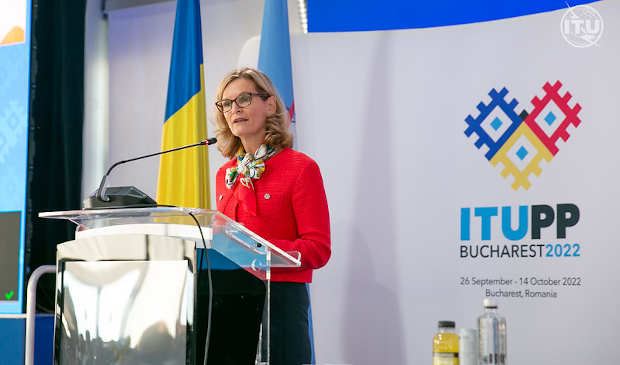Broadband Commission Assesses AI and the Digital Divides
Broadband Commission Assesses AI and the Digital Divides
The analysis identifies challenges associated with AI and other emerging technologies.
Artificial intelligence (AI) is poised to help bring online the 2.6 billion people still not connected to the Internet, according to The State of Broadband 2024 from the Broadband Commission for Sustainable Development.
The Broadband Commission released the first part of the report on June 20 at its virtual Spring Meeting, which brought together government leaders and heads of international organizations alongside representatives of private sector companies, civil society and academia.
The report reviews how AI solutions can accelerate progress on broadband advocacy targets aimed at getting everyone online and achieving the UN Sustainable Development Goals (SDGs).
According to The State of Broadband 2024: Leveraging AI for Universal Connectivity, emerging technologies stand to revolutionize the way decisions are taken and services are provided.
The report highlights how AI is already reshaping the delivery of traditional services for human well-being in sectors such as government, education, healthcare and finance.
The analysis also identifies challenges associated with AI and other emerging technologies. These include energy consumption, misinformation, reinforcement of biases and gender discrimination. Commissioners focused on how to mitigate risks of emerging technologies while maximizing the benefits.
An estimated 2.6 billion people around the world remain offline, according to the International Telecommunication Union (ITU), the UN Agency for Digital Technologies.
While overall Internet use is increasing, the benefits of access are unevenly distributed, reinforcing persistent digital divides affecting women and people in countries with lower economic development. The elderly and people with disabilities are among other groups being left behind.
“Broadband is fundamental to ensure that everyone can benefit from digital technologies when so many people are still offline around the world,” said ITU Secretary-General Doreen Bogdan-Martin, Co-Vice Chair of the Commission. “AI and other emerging technologies can help efforts to achieve universal meaningful connectivity, and it’s our job to make sure this happens in a way that is responsible for people and the planet.”
The Broadband Commission reviewed progress on its 2025 Advocacy Targets, comprising seven objectives for action in broadband development and universal connectivity. One target for mobile broadband affordability is close to being achieved. A target for gender equality in access to broadband has been achieved for some countries, although not globally.
The Commission noted that AI and emerging technologies can drive progress on broadband and the SDGs. However, balancing the promotion of AI benefits while managing the challenges is a key task for policy-makers who are “racing to catch up” to the implications of the technologies.
“Having two thirds of the world’s population now online is a cause for celebration. But with only half as many connected in least-developed countries, and even less among women, the new report shows the urgent work still to be done,” said UNESCO Director General Audrey Azoulay, Co-Vice Chair of the Commission. “We must also address the risks faced by those online, through better governance of digital platforms, ethical use of AI and massive upscaling in digital skills, including media and information literacy.”
The Spring Meeting also launched a Working Group on Data Governance to devise policy solutions to address and actively promote gender equality and digital sustainability amid the AI revolution.
Part two of The State of Broadband 2024, to be released later this year, will provide recommendations on ways to achieve the Commission’s advocacy targets.
As the UN Summit of the Future in September approaches, insights from the Spring Meeting and The State of Broadband 2024 report are set to help shape a digitally inclusive global agenda.
Courtesy: ITU















